Tag:
PHE/PED
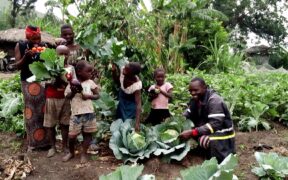
In 2022, Knowledge SUCCESS collaborated with 128 Collective (formerly Preston-Werner Ventures) to conduct a rapid stock-taking exercise to document the impact of HoPE-LVB, an integrated Population, Health, and Environment (PHE) project in Kenya and Uganda. During a recent webinar, panelists shared how HoPE-LVB activities continue in the two countries.
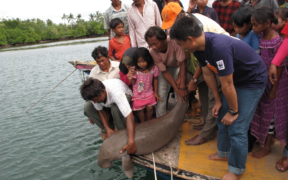
In March 2021, Knowledge SUCCESS and Blue Ventures, a marine conservation organization, collaborated on the second in a series of community-driven dialogues on People-Planet Connection. The goal: to uncover and amplify the learnings and impact of five national PHE networks. Learn what network members from Ethiopia, Kenya, Madagascar, Uganda, and the Philippines shared during the three-day dialogue.
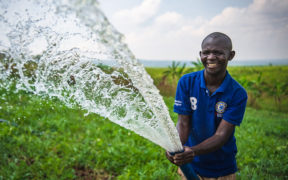
On Earth Day 2021, Knowledge SUCCESS launched People-Planet Connection, an online platform focused on population, health, environment, and development (PHE/PED) approaches. As I reflect on the growth of this platform at the one-year mark (as we approach the annual celebration of Earth Day), I’m happy to report the addition of blog posts and time-bound dialogues to share and exchange information in a more timely and friendly format. As is the case with the new and the young, we have growth yet to come—to bring greater awareness of the value of this platform to the PHE/PED community and beyond.
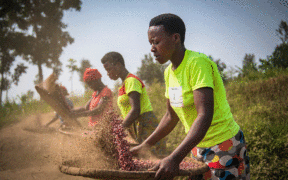
In September 2021, Knowledge SUCCESS and the Policy, Advocacy, and Communication Enhanced for Population and Reproductive Health (PACE) project launched the first in a series of community-driven dialogues on the People-Planet Connection Discourse platform exploring the links between population, health, and the environment. Representatives from five organizations, including youth leaders from PACE’s Population, Environment, Development Youth Multimedia Fellowship, posed discussion questions to engage participants around the globe on the links between gender and climate change. The one week of dialogue generated dynamic questions, observations, and solutions. Here’s what PACE’s youth leaders had to say about their experience and their suggestions for how the discourse can be translated into concrete solutions.

With so many useful tools, resources, or newsworthy items to choose from, maybe you’d like to know more about what’s available? We’re testing a new product called And Another Thing, a list of more resource choices that are useful, relevant, and timely to anyone working in FP/RH.
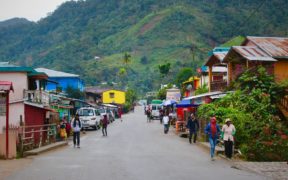
Madagascar has remarkable biodiversity with 80% of its flora and fauna found nowhere else in the world. While its economy is highly reliant on natural resources, significant unmet health and economic needs drive unsustainable practices. In the face of growing uncertainty—Madagascar is extremely susceptible to climate change—we spoke to Madagascar PHE Network Coordinator Nantenaina Tahiry Andriamalala about how early population, health, and environment (PHE) successes have led to a rich network of organizations working to address health and conservation needs in tandem.
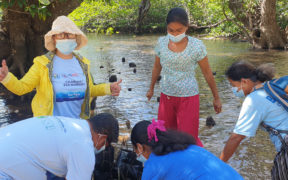
The Twin-Bakhaw project advocates for gender equity via sexual and reproductive health services among indigenous populations. Each newborn will have a “twin” mangrove seedling, which the newborn’s family must plant and nurture until it is fully grown. The project exemplifies the importance of family planning and reproductive health interventions in long-term environmental protection measures. This is part 1 of 2.

The Twin-Bakhaw project advocates for gender equity via sexual and reproductive health services among indigenous populations. Each newborn will have a “twin” mangrove seedling, which the newborn’s family must plant and nurture until it is fully grown. The project exemplifies the importance of family planning and reproductive health interventions in long-term environmental protection measures. This is part 2 of 2.
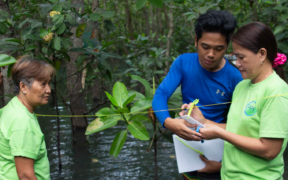
The Philippines has been a pioneer of programming using the multisectoral Population, Health, and Environment (PHE) approach to improve conservation efforts, family planning, and overall health. A new publication highlights insights and themes from two decades of PHE programming, sharing lessons for others involved in multisectoral approaches.














